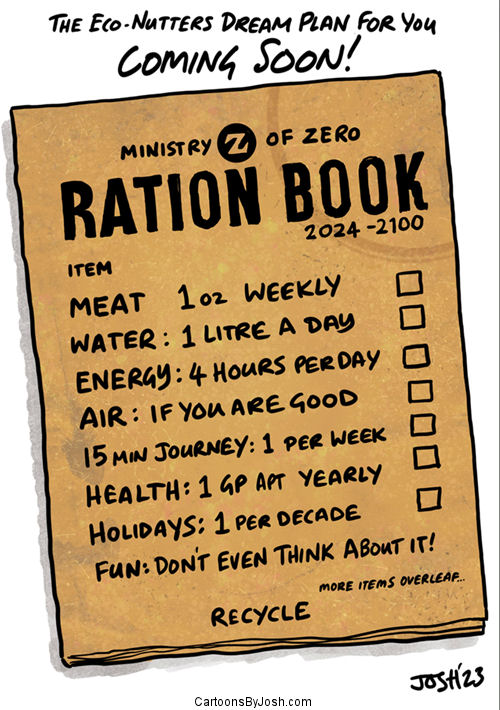“Free Range” People - ORIGINAL CONTENT
Free Range: allowed to range and forage with relative freedom
(Merriam-Webster)
Residents of the developed nations have largely been “free range” people, free to live where they choose to live, work where they choose to work, travel when and where they choose to travel, eat what they choose to eat and buy what they choose to buy within their means.
Those freedoms were interrupted, to one extent or another, by government edicts in response to the COVID19 pandemic. Travel was restricted, “non-essential” businesses were forced to close, offices and schools were closed and employees and students worked and studied from home over the internet. In retrospect, it appears that much of this interruption of individual freedoms was unnecessary and, in some cases, counterproductive.
The pandemic lockdowns, however, resulted in a small but measurable decrease in global CO2 emissions. Government officials and climate change alarmists realized that similar, more extensive and longer-term lockdowns had the potential to reduce CO2 emissions to assist in achieving Net Zero emissions goals. There appeared to be little concern regarding the losses of freedom which would result from such actions.
There is growing discussion regarding climate lockdowns of various forms, including travel restrictions. Air travel restrictions are already in place in France, requiring shorter trips to be taken by train.
A climate initiative proposed by a group of major city mayors has proposed banning meat and dairy consumption, banning personal vehicles and limiting clothing purchases to three items per year per person. Producers are conducting major promotions for “veggie burgers”, “Frankenmeat” and nut-based dairy substitutes, while some governments are taking actions to remove farmland from production and to destroy meat and dairy animals.
The New York Times has declared the end of vacations to eliminate the associated CO2 emissions. So far, that demand has not been adopted by governments.
Urban Planners are touting the benefits of 15-Minute Cities, discussed here and here. One obvious “benefit” would be elimination of the need for personal vehicles, since most products and services would be available in the 15-minute city. While those who are interested in living in a 15-minute city should have the opportunity to do so, those not interested should not be pressured into moving into a highly concentrated urban environment.
Governments are imposing bans on internal combustion engine (ICE) vehicles and power equipment, natural gas and propane appliances, and fossil-fueled electric power generation and the use of fossil fuels in industrial production. In the US, the goal is to move to all-electric everything by 2050, with fixed dates for the elimination of coal (2030) and natural gas (2035) power generation.
The Ration Book shown in the cartoon below is unfortunately only a slight exaggeration of the measures which have been proposed to reduce CO2 emissions by restricting personal freedoms on a permanent basis.

There is growing pressure on the US federal government to declare a “climate emergency”, though there is clearly no such emergency. However, such a declaration would arguably empower the President to take many of the actions discussed above by executive fiat, avoiding the need for congressional action.
“Power tends to corrupt; absolute power corrupts absolutely.”, Lord Acton